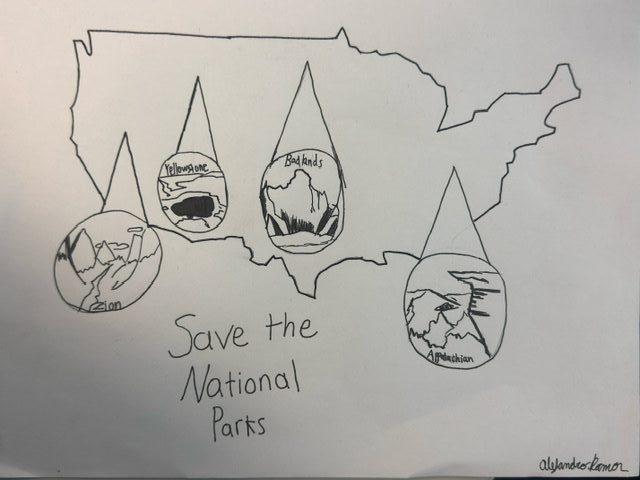Is it better to be a little fish in the big pond of an Ivy League school or a big fish in the little pond of a state school?
In Malcolm Gladwell’s novel David and Goliath, the New York Times bestselling author investigates this question in his Caroline Sacks chapter. As a senior currently exploring colleges and universities, this chapter completely changed the way I see the college decision process.
Gladwell’s line of reasoning revolves around the hidden merits of attending a secondary school. By doing this, he asks his audience a very uncomfortable yet essential question: are your chances of long-term success higher in an environment where you are constantly belittled by the overwhelming crowd of academically overachieving students, or in an environment where you have constant opportunities to be a leader or at the top of your class, even if the prestige of the school is lesser than? In other words, would you rather be a small fish in a big pond or a big fish in a small pond?
“The more elite an educational institution is, the worse students feel about their academic abilities,” Gladwell argues. “How you feel about your abilities – your academic ‘self-concept’ – in the context of your classroom shapes your willingness to tackle challenges and finish difficult tasks. It’s a crucial element in your motivation and confidence.”
This concept is called “relative deprivation.” It was coined by Samuel Stouffer, and it proved that humans form our impressions of ourselves and compare ourselves not globally, but locally, in the smallest context available with people we subconsciously deem in the same boat as ourselves.
The effects of relative deprivation have been studied and proven on multiple occasions. In a study by the American Economics Association, John Conley and Ali Sina Önder conducted a study of academic publication rates among economics majors within six years of graduating. Conly and Önder found that students in the 80th percentile of Ivy League schools such as Harvard or M.I.T. have a substantially lower publication rate than students at the top of their class from colleges such as Boston University or any other non-top 30 schools.
Take a moment to digest this. For a student to be in this range, they must be exceptionally smart; definitely smart enough to be in the top 99th percentile at a non-top 30 school. But because they are studying at an Ivy League, their performance falls to the 80th percentile, and their post-graduate success plummets.
The way high school students are taught often prevents them from thinking consequentially. For four of their most formative years, students are pressured to work as hard as they can for one sole purpose: getting into the best college possible. This creates a false conception in students’ minds as to where they should attend college, given that “best” is often intended as the most academically elite school. It rids them of the ability to think critically instead of emotionally, and instead of considering important factors like cost, student life, or their career beyond college, they make their admission decisions based on societal or familial pressures.
In reality, the school that is truly best for you in the long term isn’t always the one you want in high school. It might not even be your second favorite or your third. It may be the smallest pond on your list.
Think strategically when making your college decision. Remember that the value placed on Ivy League schools is only there because society made it that way, not because it is the direction guaranteed to maximize future success. Consider instead relative deprivation, cost, and the opportunities at your disposal within that specific context.








